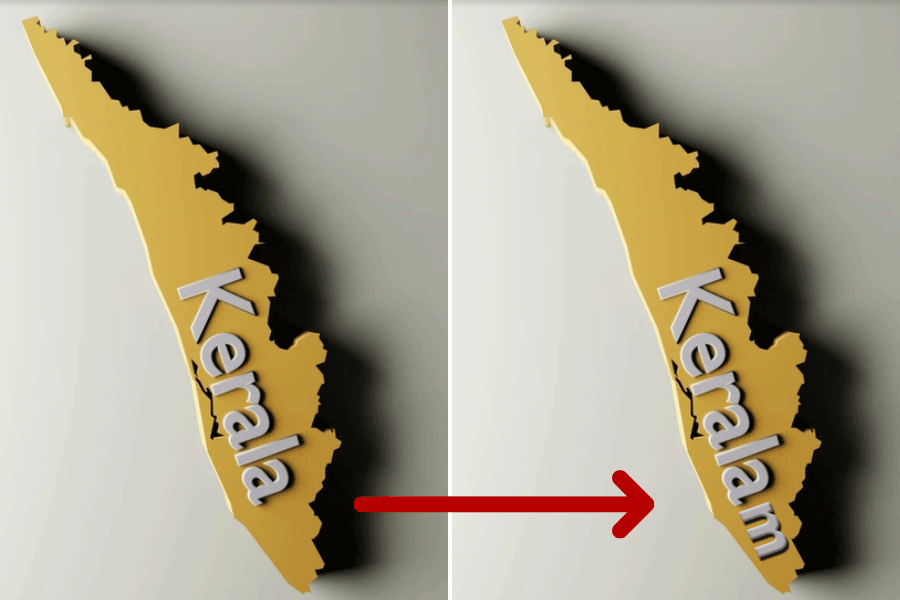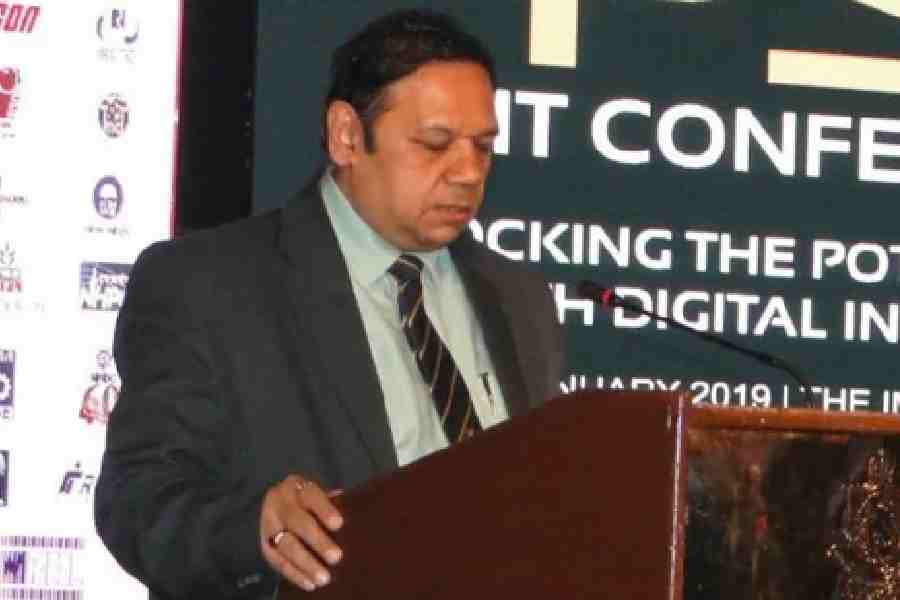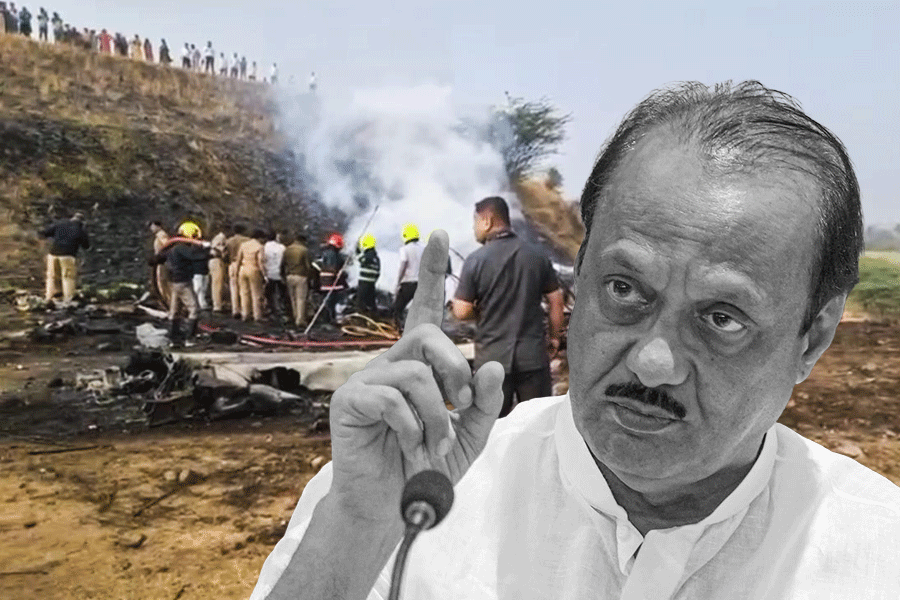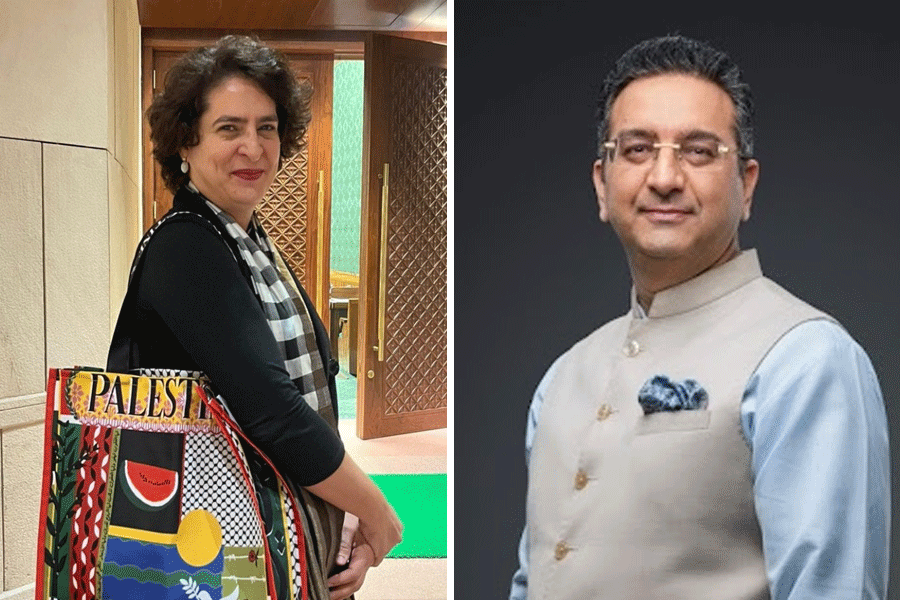 |
Breakfast is probably not the best time to impose on a politician. Unless, of course, he is Shashi Tharoor. The member of Parliament from Thiruvananthapuram and writer manages to look band-box fresh even with a few hours sleep. He was up till 3.00am the night before, tweeting on India’s thrilling cricket victory in Mohali.
We are meeting at his sister’s house in Wimbledon, hours before he catches his flight back home after a whistle-stop London tour. With everything running behind schedule, it is mildly chaotic. His wife Sunanda looks tired — she has not slept for more than a few hours for the last few days and the packing is not yet over. Only Tharoor looks remarkably calm as we settle down to chat.
The 54-year-old former diplomat has been grabbing the headlines for a while — ever since, in fact, he was elected to Parliament last year and appointed minister of state for external affairs. It has been an eventful year — replete with his outspoken comments and controversy-generating tweets, allegations against him of irregularities over the franchise of the Kochi Indian Premier League (IPL) cricket team and his very public resignation. It was quite a political debut — Tharoor, it seemed, had not just hit the ground running, but was in for an Olympic-style triathlon.
Looking back, does he regret his involvement with the Kochi IPL? Tharoor is candid. “If the team collapses, I would certainly feel a lot of regret,” he says. “But I don’t regret my earlier role, because I didn’t think there was anything inappropriate, which is why I called for an enquiry when I resigned.”
He makes a strong defence of Sunanda’s involvement, explaining that she had shares in the company before the IPL bid and that she had returned all her shares in it.
“Sunanda had every right to be one of the promoters,” says Tharoor emphatically. “She paid for her shares in Rendezvous Sportsworld, which was the promoting company, well before that company had successfully mounted a bid for the IPL. And when this controversy made it look like either of us was doing anything inappropriate, she promptly returned the shares for exactly what she paid for it, not a paisa more or less. So the whole thing was nonsensical, especially when the media came up with these ridiculous far-fetched fanciful figures about what her stake was worth.”
Her stake, he adds, was about 18 per cent of the Rs 1,00,000 company — Rs 18,000 or so. “And that’s all she paid and that’s all she got back. As far as the so-called sweat equity was concerned, Rendezvous as a group had an equity in the winning franchise — but this would only have had any meaning after a company was formed. So purely financially, my wife would have been better off charging them a regular consultancy fee, rather than trying to be one of the promoters herself.”
Tharoor says it was “cynical” of the media to attack her involvement. “There were several others involved in the Rendezvous promoters group; many of them were housewives in fact. But somehow, Sunanda, because she was a friend of mine, was inappropriate from their point of view.”
How painful was the whole affair on a personal level, I ask.
“Deeply painful,” Tharoor replies. “I’d say it was the most painful experience I went through after the death of my father.”
Sunanda, he adds, was hounded by the paparazzi. She went away to Dubai, and the two could barely meet for the next few months, telephones and emails being their only link. “But we realised that we wanted to be together.”
It had been a “whirlwind courtship” with Dubai-based Sunanda Pushkar for Tharoor, who had been married twice before. His first marriage was to his friend from his Calcutta days, Tilottama Mukherjee, with whom he has twin sons, Ishaan and Kanishk. He later married Christa Giles, a United Nations (UN) colleague, but that marriage fell apart when Tharoor made the political choice of returning to India.
“I was perfectly content focusing on my work, but then when the right person came along suddenly I felt that my soul had recognised another and that we were meant for each other,” he says, by now in full romantic flow.
Tharoor had known Sunanda socially in 2009 but they started meeting seriously from January this year. “We began to realise that we meant much more to each other than before. Then in April we had the whole trauma of the public attacks and my resignation.”
The tension did not break the new relationship. Instead it strengthened it.
“And I just feel an enormous sense of being blessed that even at this rather late stage in life the right person has come into my life. She has been embraced by my family, by my sons and, I can see, by the politically-minded public in India, in ways that have been truly gratifying,” he adds.
On August 22, a few months after the storm of resignations and allegations, Sunanda Pushkar became the third Mrs Tharoor. Despite pleas for privacy, the media made a beeline for the little Kerala village of Elavanchery and blocked the roads outside Tharoor’s grandmother’s house with their OB vans. Tharoor had to finally call the police.
“The police said, now look, we can throw them out if you want, but do you really want to do it, and should you not come to an arrangement,” Tharoor recalls. “And we thought the police were right: who wants a big incident, with that becoming the story instead of our personal moment? So we did make a little area for them in my grandmother’s courtyard and in the end everyone seemed happy.”
In a sense Tharoor was never a stranger to the spotlight. Born in London — his father Chandran Tharoor was the flamboyant London correspondent of The Statesman — Tharoor grew up in Mumbai and Calcutta after the family returned to India when he was two years old. While studying history at St Stephen’s College, Delhi — where he was the president of the students’ union — Tharoor was an active member of its theatre group, the Shakespeare Society. Old timers still recall the production of Anthony and Cleopatra where he famously played Anthony to Mira Nair’s Cleopatra.
In 1978, he joined the UN, where he honed his skills in human rights, development and international politics. He resigned in 2007 after an unsuccessful bid to be elected its secretary-general. He returned to India in 2008, joined the Congress and a year later was in the Indian Parliament.
But the tweeting minister (he has nearly 9,00,000 followers) was soon the focus of the media. “Anything I said was fodder for distortion,” says Tharoor. For a while after the IPL fiasco, he only gave interviews to the foreign media because he felt he could “put across a constructive point of view” about developments in India to an external audience without the “distortions”. Offers to write his memoirs came in from publishers in India and top literary agents in England, but Tharoor turned them down. He felt he had not finished his political innings yet.
In his own words he is now slowly “coming out of purdah” and talking to the Indian media again. We go back to cricket and the current crisis in the Kochi IPL with the Board of Control for Cricket in India threatening to cancel the IPL franchise altogether. Tharoor says he is “very disappointed” as he feels Kerala can lose its chance of getting a cricket team.
“My only motivation in getting involved in all of this was to bring IPL cricket to Kerala. And despite the fact that the circumstances surrounding it led to my departure from the government, at least I had the consolation that the team was coming to Kerala and there was a tremendous amount of excitement on the part of young people there. Kerala was going to break into the 21st century sporting environment with this. So I do rather regret that this has happened. And I have urged both sides to meet and resolve their differences around the table.”
He may not have the pressures of ministerial work any more, but putting Kerala on the international map is his priority. He is attempting to twin Thiruvanthapuram with Barcelona (if the CPM-led local municipal council clears it) and is bringing the Hay Literature Festival to the Kerala capital in November.
Surely he will bounce back again, I suggest.
“These matters are not in my hands,” he laughs. “In my own self I have bounced back, in the sense that I am not going around with a persecution complex or a chip on my shoulder. I’m not sitting around feeling either pained or sorry for myself. I have found love, I have found a tremendous amount of loyalty from my constituents. I think I am privileged to have the opportunity to come into public life in such an exciting country like India.”
And with that, I think it is time to let him go. After all, he has a flight to catch and many promises to keep. Not to forget, a troublesome IPL Kochi team that has to be set right.










